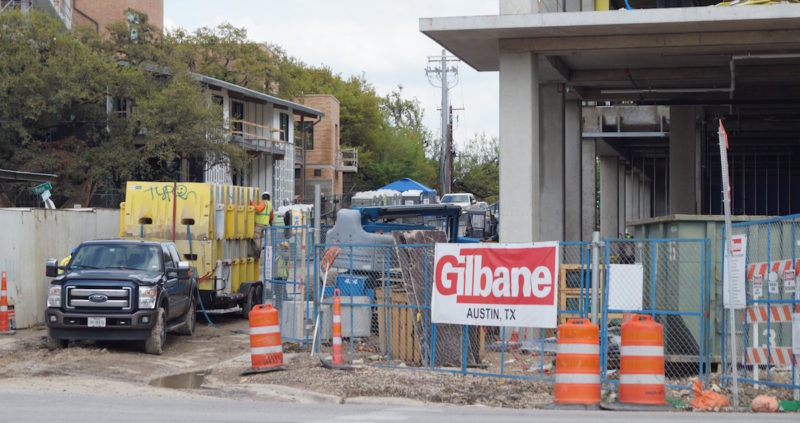Texas Governor Greg Abbott has issued an executive order that defines ‘essential services’ to include home construction, superseding local public health orders that have banned certain construction projects in Austin.
Austin ordered the shutdown of construction projects not deemed to be ‘critical infrastructure’ starting March 25. A two-day grace period that ended at midnight on March 27 allowed builders to remain on-site for shutdown activities only.
The city’s order allowed public works construction, affordable housing projects, and certain other projects continue, but the bulk of commercial and residential construction fell under the ban.
The governor’s latest order, issued today at 2:00 p.m., says that it “shall supersede any conflicting order issued by local officials in response to the COVID-19 disaster, but only to the extent that such a local order restricts essential services allowed by this executive order or allow gatherings prohibited by this executive order.”
In other words, the governor’s order doesn’t affect the ‘shelter-in-place’ restrictions imposed by some Texas cities and counties, but it does modify the exceptions allowed under those orders, replacing a patchwork of local rules with a consistent statewide definition of what’s an ‘essential service.’
The order only takes effect at 12:01 a.m. on Thursday, April 2, meaning that shuttered Austin construction projects must remain closed for another day. The order continues through April 30, though it could be extended.
“We believe the Governor’s Order supersedes inconsistent city and county rules,” commented the construction law firm Allensworth & Porter in a client update. “The door now appears open for many construction industry participants to begin, or resume, work on construction projects.”
It’s not clear that commercial construction is covered under the governor’s new order. The order defines ‘essential businesses’ on the basis of a federal guidance document, plus religious services. The federal guidance does not include a blanket exception for commercial construction like office buildings or retail spaces.
It specifies an exception for “workers performing housing construction related activities to ensure additional units can be made available to combat the nation’s existing housing supply shortage.”
Abbott’s order may be subject to legal challenge from local governments, should they choose to do so. At least one Democratic lawmaker recently has challenged the legality of Abbott’s exercise of his authorities under the Texas Disaster Act.
Specifically, Abbott’s executive order relies on a power granted to him under the Texas Disaster Act, which says a governor may “suspend the provisions of any regulatory statute prescribing the procedures for conduct of state business,” and “issue executive orders… hav[ing] the force and effect of law.”
